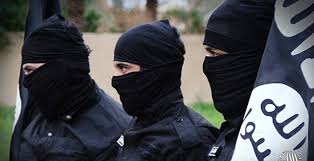Hawzah News Agency (Mosul, Iraq) - Two notorious ISIL terrorists who have committed mass executions were arrested in Mosul and Diyali of Iraq, Iraqi sources said Saturday.
The Iraqi police forces in Nineveh province arrested a key ISIL leader of the terrorist group's so-called Religious Court in the town of Achhaleh in Southern Mosul, the Arabic-language Sumeriya News quoted spokesman of Iraqi Interior Ministry Brigadier General Sa'ad Ma'an as saying.
The captured ISIL terrorist has been in charge of execution of a large number of civilians and Iraqi security forces, it added.
Meantime, the Arabic-language al-Ma'aloumeh news website quoted an Iraqi security body as reporting that the country's security forces have captured notorious ISIL Commander Seraj Kamel al-Azawi, nom de guerre Abu Riyaqdh al-Askari in the city of Uldoz in Kirkuk province. Al-Azawi was a notorious ISIL commander in al-Azim region of Diyali province.
Al-Azawi was in charge of 2014 attack on al-Azim region and carried out abductions and massacre of civilians in Anjaneh region.
In a relevant development in late June, a prominent Iraqi security expert warned of the US plot to transfer the ISIL terrorists to the bordering areas with Syria in collaboration with the two countries' tribes.
The Arabic-language al-Ma'aloumeh news website quoted Hossein al-Kanani as saying that the US attempts to transfer the ISIL terrorists to the bordering areas of Iraq and Syria and build safe shelters for them through coordination with a number of tribal leaders in the region.
He referred to the recent attempts by US Ambassador to Baghdad Matthew Tueller to meet the Iraqi tribal leaders, and said other goals are also pursued by the measure, including targeting the Hashd al-Shaabi (Iraqi popular forces) and Iraqi security forces in these regions and cutting Tehran-Baghdad-Damascus-Beirut connections by taking control over the Iraqi-Syrian borders.

